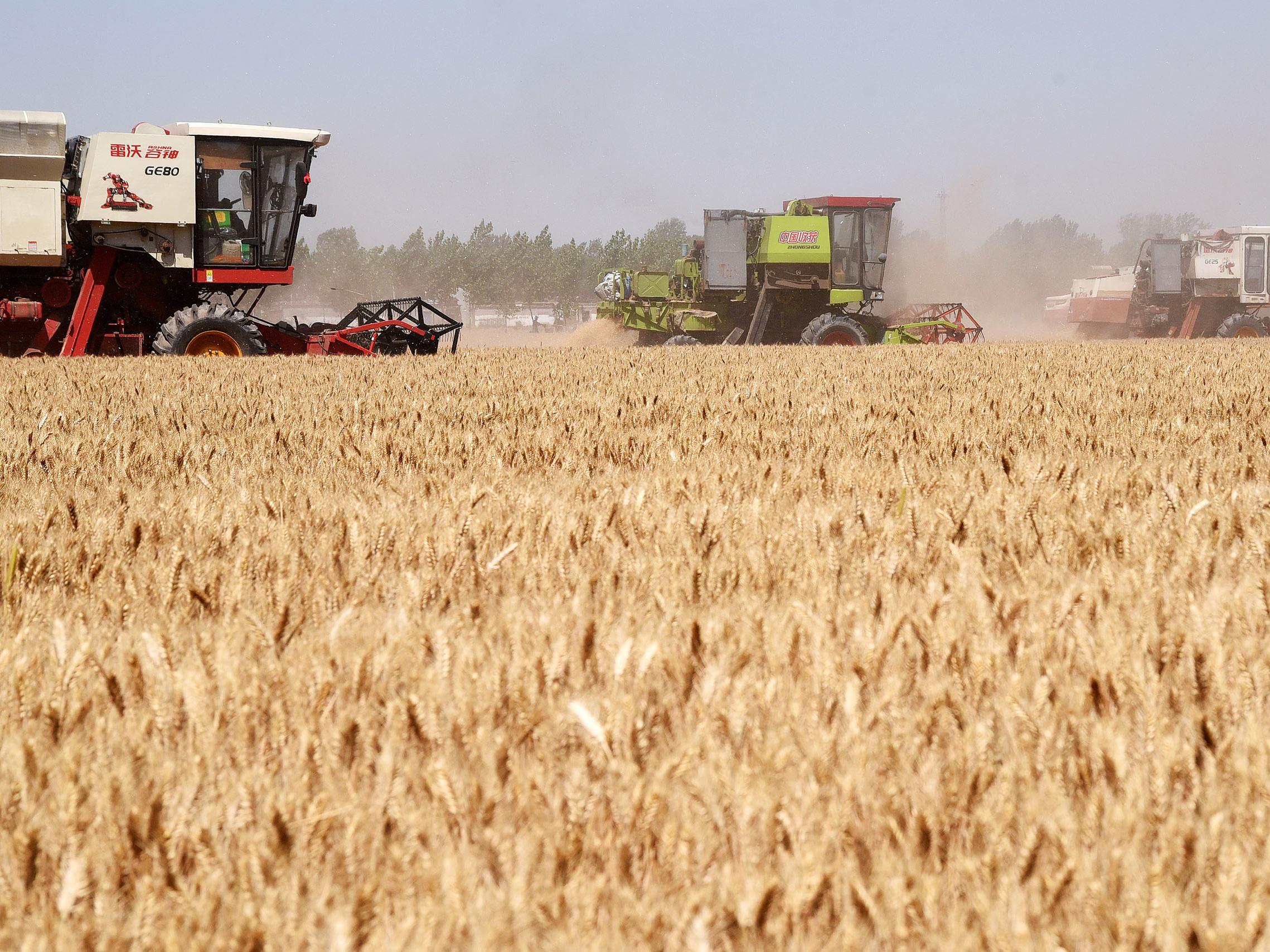Large area of China could soon be virtually uninhabitable as deadly heatwaves become more intense, scientists warn
Research adds to body of evidence showing heat-related deaths around world will increase dramatically in coming decades

Vast swathes of China could be left uninhabitable towards the end of the century due to heatwaves scorching the region, according to new research.
As carbon emissions soar and farmland expands across the fertile North China Plain, this area could soon see the biggest climate change-induced loss of human life on Earth, says the study by the team at America’s Massachusetts Institute of Technology (MIT).
Their research suggested that human activity will make deadly heatwaves across the region far more likely in the coming years and leave farming there impossible.
The North China Plain is an important slice of land stretching the length of the Yellow River.
It is the most populous region of the most populous country on Earth, and it plays a vital role in feeding the nation’s 1.4 billion inhabitants.
The scientists behind the study warned that unless China – the world largest emitter of greenhouse gas emissions – curbs its pollution there could be serious consequences for its own population.
“This spot is going to be the hottest for deadly heatwaves in the future, especially under climate change,” said one of the study’s authors, Professor Elfatih Eltahir at MIT.
In their study published in the journal Nature Communications, Professor Eltahir and his colleague Dr Suchul Kang used climate models to predict how rising global temperatures would affect the well-irrigated farmland of the North China Plain.
Low rainfall across the region make irrigation networks necessary to effectively utilise the highly fertile soil. However, as heat increases these systems will result in high levels of water evaporation, making the air incredibly humid.
Humidity exacerbates the effects of heatwaves for people as it stops them being able to shed excess heat from their bodies by sweating.
In their paper, the researchers predict that in the latter half of the century temperatures and humidity will regularly combine across the North China Plain to reach levels at which a healthy person may not be able to survive outdoors for more than six hours. Farming under such conditions would be next to impossible.
Overall, the modelling suggested that irrigation added an extra 0.5C to overall warming in the region.
“Irrigation exacerbates the impact of climate change,” said Professor Eltahir.
The research is the latest in a series conducted by the MIT team, with their other studies focusing on deadly heatwaves striking the Persian Gulf and South Asia.
The report comes as yet another study, published in the journal PLOS Medicine, predicts deaths resulting from severe heatwaves will spike dramatically in tropical regions over the next 60 years.

In the UK, MPs have warned the government that heat-related deaths are expected to treble by the middle of the century due to global warming unless urgent action is taken.
While efforts can and must be taken to adapt infrastructure to deal with more heatwaves, all the scientists are united in calling for action to tackle these extreme events at their source. This means keeping carbon emissions as low as possible.
“The good news is that if we mitigate greenhouse gas emissions under scenarios that comply with the Paris agreement, then the projected impact will be much reduced,” said Professor Antonio Gasparrini from the London School of Hygiene and Tropical Medicine, one of the PLOS authors.
Join our commenting forum
Join thought-provoking conversations, follow other Independent readers and see their replies
Comments
Bookmark popover
Removed from bookmarks